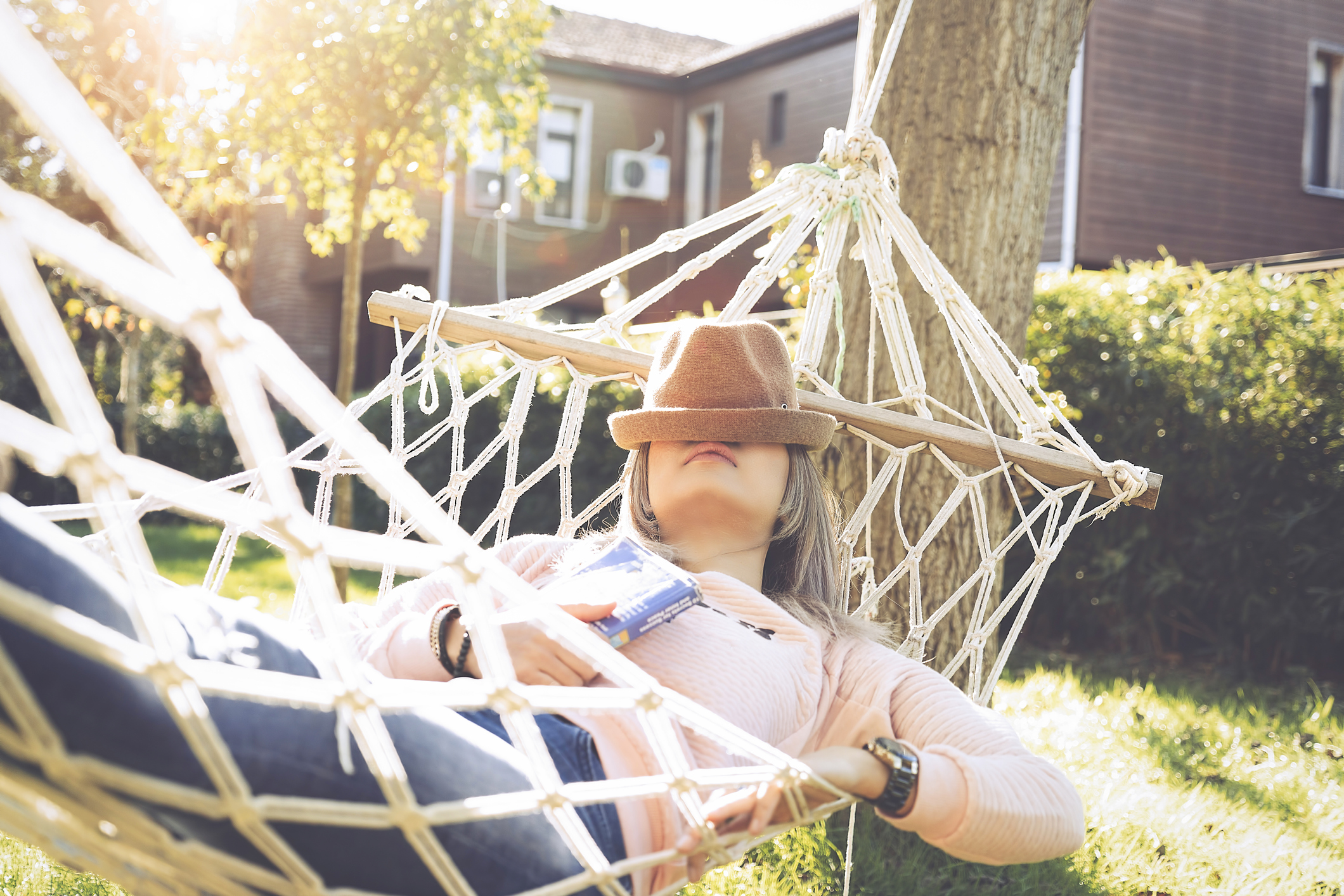Now that the days are getting longer and summer is right around the corner, the joy and excitement of planning vacations and spending time outdoors can cause us to deviate from our regular sleep schedule. If you’re busy soaking up the sun and neglecting a healthy sleep routine, then you’re probably experiencing a consistent mid-afternoon slump.
Not to worry, we’ve got a few tips that will help you adjust your sleeping habits during the summer months. Read on to find out more.
Why We Struggle to Sleep?
Before we dive into our list of remedies, we must first analyze why we struggle to sleep during the warm months of summer. For starters, longer days can make it much harder to go to bed on time. When the sun doesn’t set until nearly 9 p.m., it’s much easier to extend your daytime routine and spend more time outdoors enjoying the cooler evening. Everything you would normally do in the winter months can easily be pushed back two or three hours because of the extended daylight.
Light is one of the most important factors affecting your circadian rhythm. This is your body’s internal clock that is used to help control sleep. The longer we see the sun, the longer our body will tell us it’s time to be awake. Longer days also lead to increased bedroom temperatures, so if you try to sleep in a warm environment, your body will eventually shift from a relaxed feeling into a state of increased awareness.
Beyond that, work schedules can ramp up and lead to stress as we plan our summer vacations, social life typically becomes more involved, and we eat our meals later in the day, which are all contributing factors that can make it difficult to fall asleep.

How Much Sleep Do We Need?
Everyone knows eight hours is the gold standard, but it varies depending on your age group and the current season. We may come to terms with the fact that we’re going to sacrifice a couple hours of sleep so we can enjoy a little more daylight, but it’s important to not deprive ourselves of sleep. Simply put, you need enough sleep to get through the day without reaching for a fresh cup of coffee every hour.
There's nothing wrong with a cup of joe to break through the morning grogginess, but the afternoon hours between 12:00 and 4:00 p.m. will tell you if you’re getting enough sleep. It's completely normal to feel sleepy (especially after lunchtime), but if you are not getting enough sleep, you will feel significantly tired during this time. If you’re having trouble focusing, struggling to keep your eyes open, or not feeling as sharp mentally, afternoon fog could mean you need a little extra shuteye.

Adjusting Your Sleep Routine
If you’re already experiencing the difficulty of summertime slumber, it’s time to put your worries to bed and adjust your sleep routine, pronto! Here’s what you can do:
1. Establish a Pre-Sleep Routine
If you’re trying to catch more zzz’s, stick to a consistent pre-sleep routine. We don’t always prepare for sleep, but taking 30 to 60 minutes to unwind before bed will help you fall asleep and stay asleep. Even if your summer schedule gets busy without outdoor concerts and Friday night happy hours, try to do the same thing before bed each night to help relax your body and mind.
So, what should I do for my pre-sleep routine? Since you asked, take a warm shower, read a book, chat with your partner about your day, listen to some calming music, or try mindful exercises like yoga. Anything that will help your body transition into sleep will be beneficial, but try your best to avoid TV or other electronic devices close to bedtime.
2. Turn it Off
While we’re on the subject, exchanging tech time for fun in the sun is a great trade-off. While you still want to stick to your bedtime and get to sleep at a decent hour, being outdoors is better for your sleep health than spending two hours watching TV and another hour scrolling on your phone before bed. If you get home later than usual because you were having fun outdoors, nix the screen time and get right to bed.
3. Prep Your Room for Sleep
During the hot and stuffy summer season, it’s a good idea to create a personal sleep sanctuary. This means investing in breathable bedding materials, turning on the air conditioner or a ceiling fan, or cracking the window before bed. If you wake up sweating, then you might need to crank up the air or change your linens to a lighter fabric. Heat-wicking fabrics like silk, satin, or bamboo are lightweight for your sheets, comforter, and pillowcases.
When it comes to sleep, listen to your body. It will always tell you if you’re comfortable enough for a restful night’s sleep. Once you’ve found your ideal bedroom temperature, be wary of that early morning sunshine glaring in through your window. A little bit of sun can be good to help let you know it’s time to wake up, but considering the early-morning summer sunrise, it's a good idea to invest in blackout curtains or window shutters to prevent the rays from disrupting your sleep before it’s time to wake up.
4. What’s on the Menu?
It’s common for your summer diet to skew toward barbecue, cocktails, and ice cream, but going overboard on your diet can negatively impact your sleep. We all love a family barbecue and a day spent by the grill, but heavy meals can make you feel sluggish and want to sleep during times of the day that are not the best for napping. Alcohol can make you drowsy and cause you to crash after brief periods of energy, and we’re all familiar with the temporary sugar rush of ice cream and other sweets.
This doesn’t mean you should eliminate these items from your diet, a good seasonal meal should be enjoyed in moderation. If you’re really into sleep health and aiming for a clean diet, try for foods that are known to increase melatonin and serotonin production. Seafood, nuts, dairy, leafy greens, whole grains, and pineapple can all help send the signal to the brain that it’s time for rest. Try to eat your last meal at least three to four hours before bed or one to two hours if you’re enjoying a smaller after-meal snack.

Let’s Recap
To adjust your sleep schedule during the summer months, be sure to follow these four tips:
-
Wake up at the same time each day and stick to a consistent bedtime routine
-
Avoid technology and electronic devices close to bedtime
-
Prepare your bedroom for sleep and keep your space cool with the right sheets and curtains
-
Avoid overeating close to bedtime watch out for foods and beverages that will leave you sluggish
Summer Sleep Awaits
The summer season is a relaxing time to adventure with family and friends, but don’t forget the importance of quality sleep. Be sure you set aside plenty of time to regroup, recalibrate, and de-stress before bed so you aren’t feeling bogged down or overwhelmed when your head hits the pillow.
And for the best summer sleep adjustment, try investing in a new mattress. Tossing and turning can be a direct cause of a worn-out mattress that lacks the comfort and support needed to rest soundly through the night. If you’re ready to experience the level of sleep you’ve always dreamed of, give us a call, browse our digital catalog, or visit us in person to shop our entire collection of mattresses, foundations, and sleep accessories.
